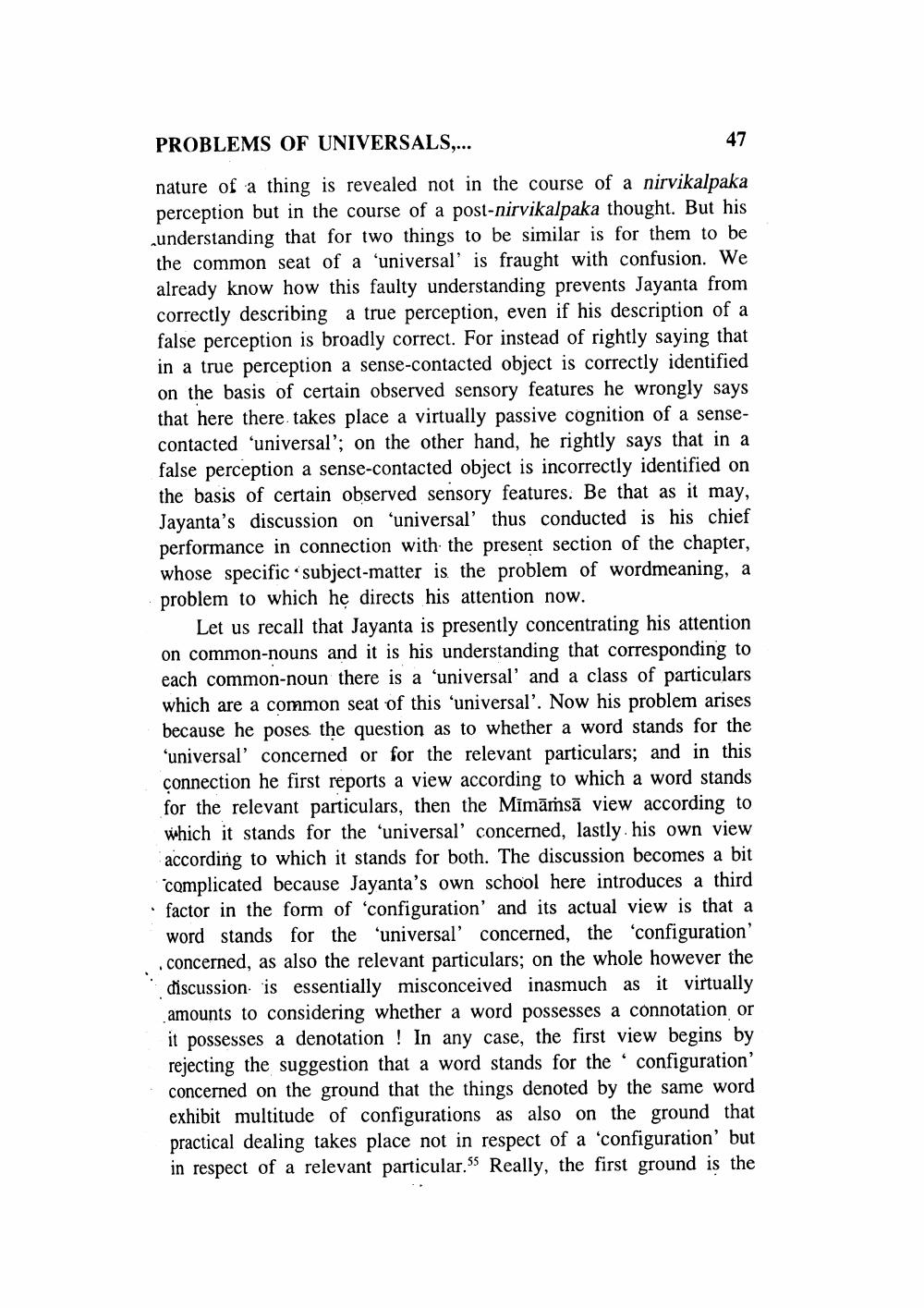________________
PROBLEMS OF UNIVERSALS,...
47
nature of a thing is revealed not in the course of a nirvikalpaka perception but in the course of a post-nirvikalpaka thought. But his understanding that for two things to be similar is for them to be the common seat of a ‘universal' is fraught with confusion. We already know how this faulty understanding prevents Jayanta from correctly describing a true perception, even if his description of a false perception is broadly correct. For instead of rightly saying that in a true perception a sense-contacted object is correctly identified on the basis of certain observed sensory features he wrongly says that here there takes place a virtually passive cognition of a sensecontacted 'universal'; on the other hand, he rightly says that in a false perception a sense-contacted object is incorrectly identified on the basis of certain observed sensory features. Be that as it may, Jayanta's discussion on universal' thus conducted is his chief performance in connection with the present section of the chapter, whose specific subject matter is the problem of wordmeaning, a problem to which he directs his attention now.
Let us recall that Jayanta is presently concentrating his attention on common-nouns and it is his understanding that corresponding to each common-noun there is a universal' and a class of particulars which are a common seat of this ‘universal'. Now his problem arises because he poses the question as to whether a word stands for the ‘universal concerned or for the relevant particulars; and in this connection he first reports a view according to which a word stands for the relevant particulars, then the Mimāṁsā view according to which it stands for the 'universal concerned, lastly his own view according to which it stands for both. The discussion becomes a bit
complicated because Jayanta's own school here introduces a third · factor in the form of 'configuration' and its actual view is that a
word stands for the universal' concerned, the 'configuration' .concerned, as also the relevant particulars, on the whole however the discussion is essentially misconceived inasmuch as it virtually amounts to considering whether a word possesses a connotation or it possesses a denotation ! In any case, the first view begins by rejecting the suggestion that a word stands for the configuration' concerned on the ground that the things denoted by the same word exhibit multitude of configurations as also on the ground that practical dealing takes place not in respect of a 'configuration' but in respect of a relevant particular.55 Really, the first ground is the




